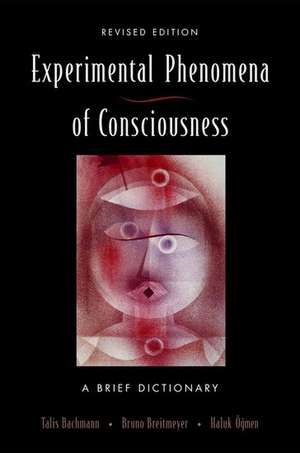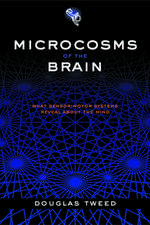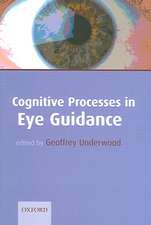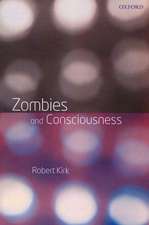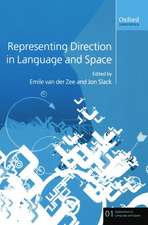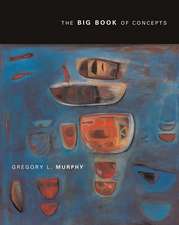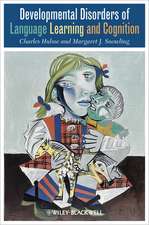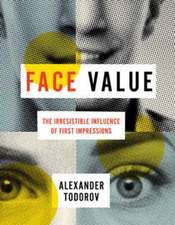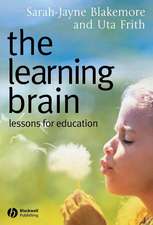Experimental Phenomena of Consciousness: A Brief Dictionary Revised Edition
Autor Talis Bachmann, Bruno Breitmeyer, Haluk Ogmenen Limba Engleză Paperback – 26 mai 2011
Preț: 253.07 lei
Preț vechi: 334.54 lei
-24% Nou
Puncte Express: 380
Preț estimativ în valută:
48.45€ • 50.36$ • 40.17£
48.45€ • 50.36$ • 40.17£
Carte tipărită la comandă
Livrare economică 27 ianuarie-01 februarie 25
Preluare comenzi: 021 569.72.76
Specificații
ISBN-13: 9780195393774
ISBN-10: 0195393775
Pagini: 144
Ilustrații: 11 color halftones, 21 lineart
Dimensiuni: 234 x 155 x 15 mm
Greutate: 0.26 kg
Ediția:Revised
Editura: Oxford University Press
Colecția OUP USA
Locul publicării:New York, United States
ISBN-10: 0195393775
Pagini: 144
Ilustrații: 11 color halftones, 21 lineart
Dimensiuni: 234 x 155 x 15 mm
Greutate: 0.26 kg
Ediția:Revised
Editura: Oxford University Press
Colecția OUP USA
Locul publicării:New York, United States
Recenzii
Review(s) from previous edition(s)
Science magazine recently listed consciousness as one of the top unsolved problems in science. But as Talis Bachmann and his coauthors show in this book, the fact that human consciousness is unsolved doesn't mean it is unexplored. Careful studies of conscious phenomena go back as far as Newton's color experiments and 'Aristotle's illusion.' This book presents a solid sampling of experimental phenomena that cast light on human consciousness. It is a useful, brief manual for courses focused on the empirical study of human consciousness.
Bachmann, Breitmeyer, and gmen have done neuroscientists, psychologists, and philosophers an enormous service. They have put together a single comprehensive dictionary of the experimental paradigms and phenomena that characterize research in consciousness. This book will not only be useful for students, but also for established investigators working in this exciting field. Philosophers, who are increasingly drawing on empirical work to bolster their ideas, will find it particularly valuable.
Experimental Phenomena of Consciousness offers a very compact and handy compendium of the relevant, empirically approachable aspects of consciousness. It is a handbook that every student of consciousness should own.
This dictionary is an indispensable little guide to the wonders of conscious sensation and perception. It provides both the student and the researcher with a lucid introduction to the variety and multiplicity of conscious phenomena that, ultimately, the science of consciousness should explain.
Science magazine recently listed consciousness as one of the top unsolved problems in science. But as Talis Bachmann and his coauthors show in this book, the fact that human consciousness is unsolved doesn't mean it is unexplored. Careful studies of conscious phenomena go back as far as Newton's color experiments and 'Aristotle's illusion.' This book presents a solid sampling of experimental phenomena that cast light on human consciousness. It is a useful, brief manual for courses focused on the empirical study of human consciousness.
Bachmann, Breitmeyer, and gmen have done neuroscientists, psychologists, and philosophers an enormous service. They have put together a single comprehensive dictionary of the experimental paradigms and phenomena that characterize research in consciousness. This book will not only be useful for students, but also for established investigators working in this exciting field. Philosophers, who are increasingly drawing on empirical work to bolster their ideas, will find it particularly valuable.
Experimental Phenomena of Consciousness offers a very compact and handy compendium of the relevant, empirically approachable aspects of consciousness. It is a handbook that every student of consciousness should own.
This dictionary is an indispensable little guide to the wonders of conscious sensation and perception. It provides both the student and the researcher with a lucid introduction to the variety and multiplicity of conscious phenomena that, ultimately, the science of consciousness should explain.
Notă biografică
Talis Bachmann: studied psychology at the University of Tartu, Estonia. He has Ph.D.-level degrees in psychology and in psychophysiology. He is a full-time professor at the University of Tartu and is internationally known for his research in perception, attention, and consciousness. Bruno Breitmeyer: is Professor of Psychology at the University of Houston. He studied mathematics at the University of Illinois and received his Ph.D. in psychology from Stanford University in 1972. Haluk Ögmen: obtained his Ph.D. in electrical engineering from Université Laval, Québec, Canada.
